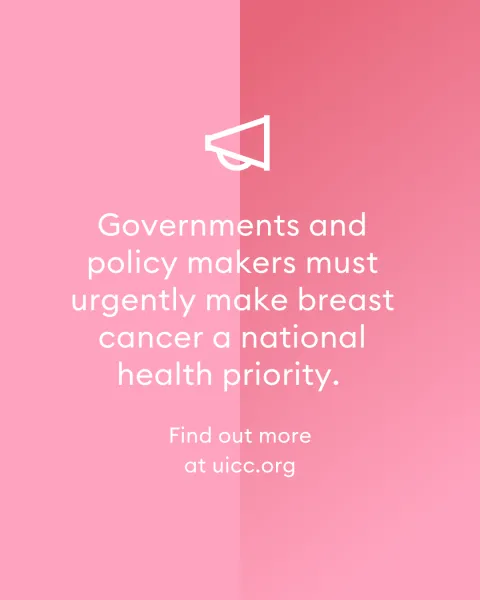Breast cancer
Breast cancer is the second most diagnosed cancer amongst both sexes representing one in every 9 cancers.

Breast cancer is the most diagnosed cancer among women worldwide with an estimated 2.3 million new cases in 2022, and the most frequently diagnosed cancer in women in 157 countries, accounting for 1 in 4 cancer cases. It is the second most frequent cancer amongst both sexes representing one in every 9 cancers. Breast cancer is the leading cause of death from cancer in women with an estimated 670,000 deaths in 2022, with a disproportionate number of these deaths occurring in low-resource settings.
UICC's Podcast on breast cancer
What is breast cancer?
Breast cancer occurs when abnormal cells in the breast grow out of control. The cells usually form a tumour that can often be seen on an x-ray or felt as a lump. If spread outside the breast to other parts of the body, it becomes advanced breast cancer. When breast cancer spreads to other parts of the body (such as the liver, lungs, bones or brain), it is said to have metastasised, and is referred to as metastatic breast cancer.
Survival rates for breast cancer are very high when the cancer is detected early and where treatment is available. The five-year breast-cancer survival rates exceed 90% in high-income countries, compared to 66% in India and 40% in South Africa. Unfortunately, many breast cancer cases are diagnosed at an advanced stage in many low- and middle-income countries, when the cancer is more difficult to treat, is more expensive to do so, and is usually incurable.
Despite advances and progress seen in breast cancer in recent years, current data highlights that by 2040, breast cancer incidence will increase 40%, and mortality is expected increase by 50%, with a disproportionate number of cases and deaths expected to occur in low-resource settings.
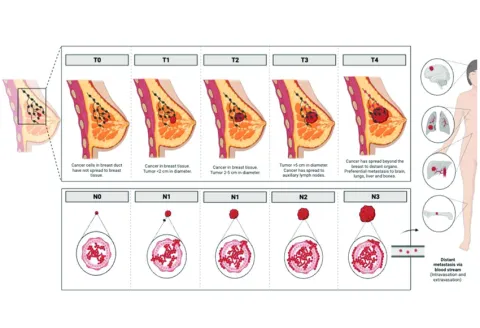
Addressing breast cancer
The World Health Organization’s Global Breast Cancer Initiative (GBCI), established in 2021, brings together stakeholders from around the world with the shared goal of reducing breast cancer by 2.5% per year, which over a 20-year period would save 2.5 million lives.
In March 2022, GBCI launched an implementation framework that describes three key pillars with specific targets to achieve these objectives.
Pillar 1
60%
early stage diagnosis
Health promotion and early detection
Achieve diagnosis of at least 60% of invasive breast cancers at stage I or II.
Pillar 2
60-day
diagnosis
Timely diagnosis
Evaluation, imaging, tissue sampling and pathology completed within 60 days.
Pillar 3
80%
treatment completion
Comprehensive breast cancer management
80% undergo multimodality treatment without abandonment
UICC's work on breast cancer
UICC Breast Cancer programme
Leveraging established UICC Capacity Building programmes and convening platforms, the Breast Cancer programme aims to strengthen the capacity of key breast cancer actors to increase their impact and engage them in support of the WHO Global Breast Cancer Initiative (GBCI)’s targets.
Through a series of activities and opportunities, the programme aims to deliver the following key outcomes:
-
Accelerate the development of breast cancer leaders
-
Strengthen organisational capacities of breast cancer organisations, including patient groups
-
Support the development of the health workforce in breast cancer
-
Support national action on breast cancer in responding to key areas and needs in breast cancer control
-
Strengthen networks and collaborations in breast cancer at a national, regional and global level
-
Unite the voice of the breast cancer community, including patient groups, to advocate for more effective breast cancer control
The programme builds bridges between a vast array of stakeholders (cancer organisations, patient groups, healthcare providers, private sector, governments and multilateral agencies) at regional and global levels to catalyse engagement towards the WHO GBCI targets, with a focus on action in low and middle income countries.
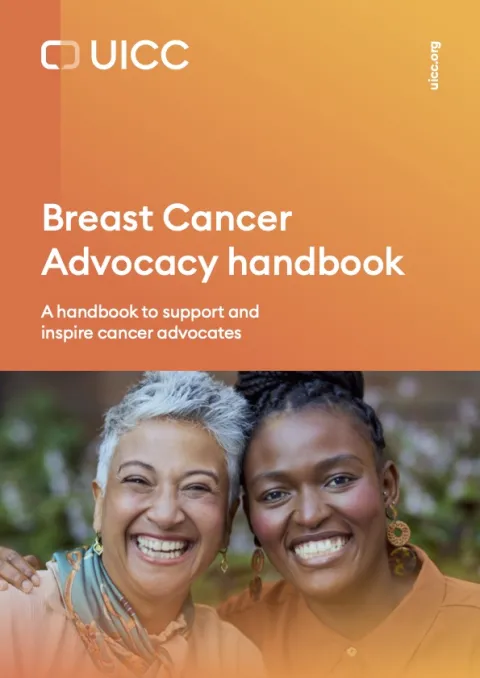
Key resources
Virtual Dialogue - Addressing breast cancer: How civil society’s advocacy drives change

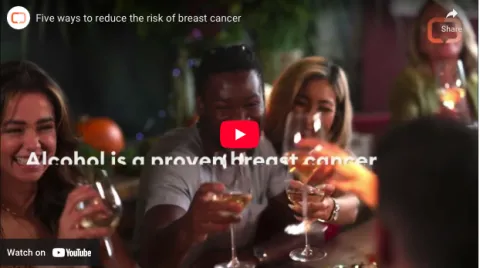
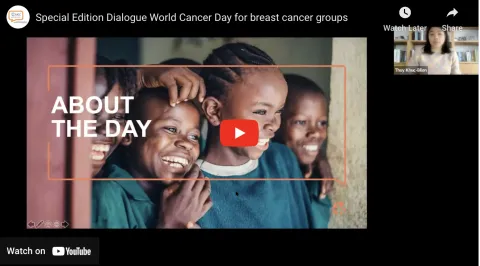
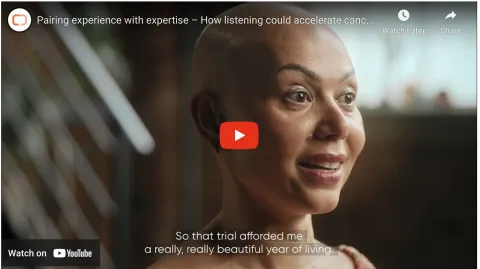
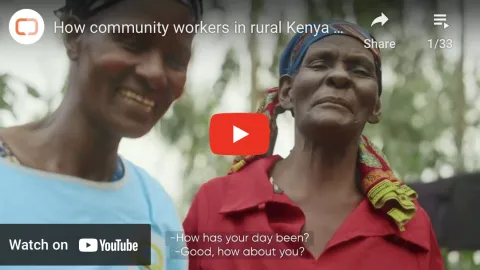
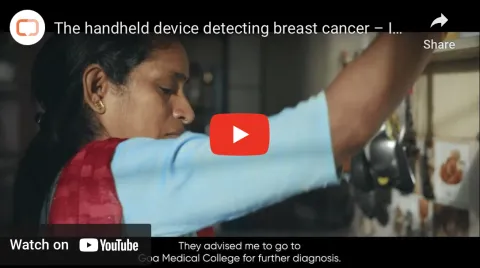





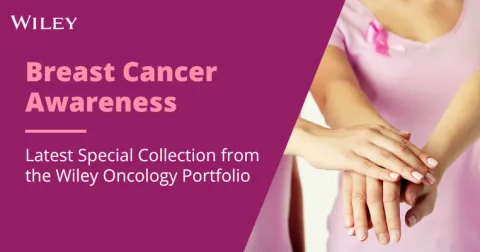
What is breast cancer?
Breast cancer is the uncontrolled growth of abnormal breast cells that form a tumour. If the cancer cells stay in the breast (or nearby lymph nodes), it’s considered early or locally advanced breast cancer. When the cancer spreads to other parts of the body (such as the bones, liver, lungs, or brain), it is called metastatic breast cancer. Breast cancer is the most common cancer in women.
What are the signs of breast cancer?
Signs of breast cancer include a lump or thickening in the breast, changes in breast shape or size, dimpling or redness of the skin, nipple discharge or changes in nipple appearance. It's important to see a doctor if you notice any persistent or unusual changes in your breasts, even if they are not painful.
How can breast cancer be detected?
Breast cancer can often be found early by checking your own breasts regularly, having a breast exam by a doctor or nurse, and getting a mammogram. The age and frequency for these checks depend on your age, personal risk factors, and screening guidelines in place in your country, so it’s best to talk with a healthcare provider about what’s right for you. Breast cancer detected at an early stage is usually easier to treat, and has a better chance of recovery.
Can breast cancer be prevented?
While not all breast cancers can be prevented, certain lifestyle changes can significantly lower the risk of developing breast cancer. These include maintaining a healthy weight, limiting alcohol intake, staying physically active, and avoiding tobacco. Breastfeeding, when possible, may also reduce risk.
Who is at risk of developing breast cancer?
The exact cause is not always known, the risk of developing the disease can be higher depending on factors such as age, obesity, use of alcohol, family or personal history of breast cancer, certain genetic mutations (e.g., BRCA1 and BRCA2), history of radiation exposure, reproductive history (such as age that menstrual periods began and age at first pregnancy), tobacco use and use of hormone replacement therapy.
The risk is also higher if you are a woman, with about 99% of cases occurring in women and 0.5–1% in men.
What treatments are available for breast cancer?
Treatment options depend on the stage and type of breast cancer and may include surgery, radiation therapy, chemotherapy, hormonal therapy, targeted biological therapy, or immunotherapy. Treatment plans are tailored to the individual’s needs.
Where can I get support if I have breast cancer?
If you have breast cancer, talk to your doctor or another healthcare professional, who can guide you to the right emotional and practical support, such as an oncologist, a social worker, a psychologist, a patient navigator, or supportive care services. Connect with local cancer organisations or support groups, and access trusted online resources to find reliable information and guidance on treatment and supportive care. It is important not to be isolated.
How is breast cancer addressed at a global level?
The WHO’s Global Breast Cancer Initiative (GBCI) works globally to reduce breast cancer deaths by promoting early diagnosis, timely treatment, and comprehensive care for patients, with the aim of saving millions of lives and reducing inequalities in breast cancer outcomes. Organisations like UICC and its members support countries implement recommended interventions to reduce the number of people affected by breast cancer, and improve treatment outcomes; raising awareness, delivering services and advocating for policy change.
Latest news and blog articles on breast cancer
Closing the breast cancer gap in low- and middle-income countries
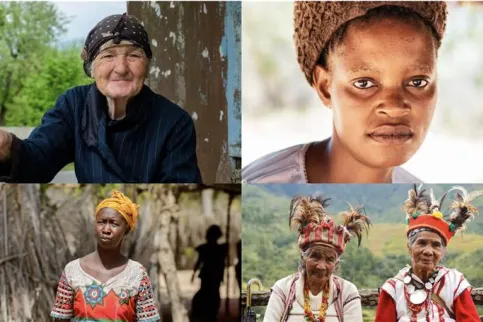
UICC members in low resource settings improve early diagnosis of breast cancer
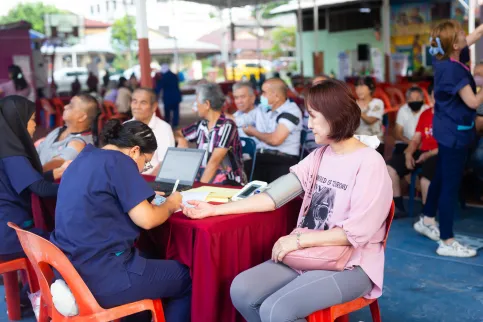
New policy brief by UICC provides guidance for stronger national responses to breast cancer
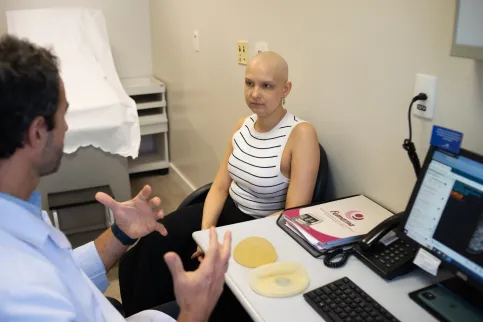
Related pages
UICC’s actions on breast cancer
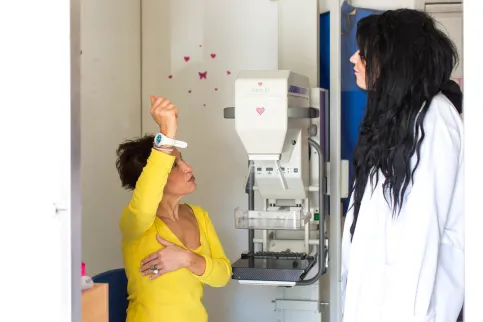
Breast Cancer Awareness Month
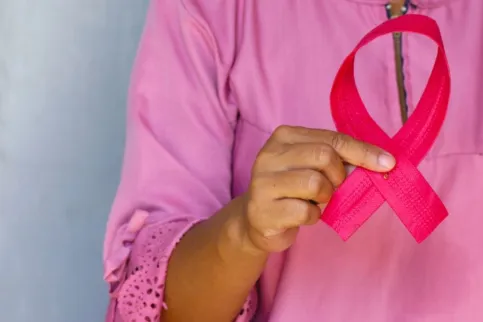
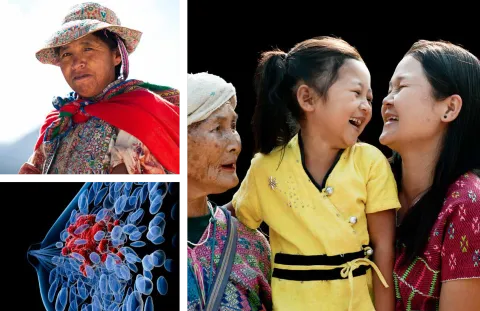
Last update
Wednesday 05 November 2025







